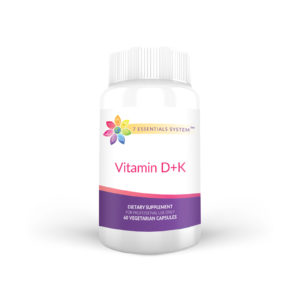
Summer is the perfect time to talk about vitamin D. Over the last couple of years, some pretty exciting studies have come out that have continued to link vitamin D not only to Breast Cancer prevention but also to the vitality of the whole body.
The 411 on Vitamin D
Technically, vitamin D is a steroid hormone that can affect over 100 genes in the body. Vitamin D has to be “activated” for it to be effective. Most tissues in the body have cellular receptor sites where this happens.
If you are new to vitamin D, let me share something about what I have seen over and over again with thousands of people. Just about every woman with Breast Cancer that my team and I have supported also had a deficiency in vitamin D.
Coincidence? Not a chance! Chronically low vitamin D and Breast Cancer go hand in hand. Studies have confirmed this for years.
Vitamin D is Essential for Breast Cancer Prevention
Once a D molecule is “plugged in” where it is needed, it can assist in a diversity of functions from calcium absorption to reproductive function. When a person is deficient, this means that all the body-wide interactions that depend on it, including cancer protection, cannot occur most efficiently. A recent 2017 study analyzed data from close to 100 women, half of whom had Breast Cancer. They found that serum Vitamin D levels lower than 20 ng/ml were equated with higher Breast Cancer risk overall.
Of course, studies also show that when you increase your intake of Vitamin D, amazing things happen. A large study at Creighton University in Nebraska found that supplementation resulted in a 60% reduction in cancer. According to the advocacy organization Grassroots Health, when individuals double their levels from 25 ng/ml to 50 ng/ml, there is a corresponding reduction in Breast Cancer by 83%!
What About the Sun?
The functions of the human body truly are incredible, but they cannot happen in a vacuum. A form of D called D3 (Cholecalciferol) is produced inside the body as a result of exposure to sunlight. Close to 90% of the usable vitamin D in the body comes in the form of D3.

Because of our need for D3, getting a moderate amount of sun exposure each day is vitally important. A 2016 study published in the Journal of Internal Medicine found that people who habitually avoid the sun have a reduction in life expectancy.
To put this in perspective, according to the study, “Nonsmokers who avoided sun exposure had a life expectancy similar to smokers in the highest sun exposure group, indicating that avoidance of sun exposure is a risk factor for death of a similar magnitude as smoking.”
New Studies Confirm Vitamin D Is Essential for Every Body
A 2018 study conducted in part by the University of California, San Diego analyzed data over ten years on close to 1,000 older adults. The researchers found that those who had D3 levels above 30 ng/ml had one-third the risk for diabetes. Those who had D levels above 50 ng/ml had one-fifth of the risk. A 2017 study at Queen Mary University of London found that supplementation helped protect against respiratory infection, flu, and colds.
Next Steps
Most people have D levels that are so low that supplementation is needed. Individuals who are on medications with contraindications for sun exposure, those with darker skin, and those who live in climates where there is less direct sunlight may also need extra D3.
The first step is to take some time to evaluate your own state of health right now. Determine if some of your symptoms may be caused by vitamin D deficiency. Tell-tale signs include:
-mood changes
-muscle weakness
-fatigue and/or exhaustion
-high blood pressure
-reproductive system changes, including infertility
Then get tested! A Vitamin D test is easy, inexpensive, and is offered through most traditional doctors. If you don’t know where to start to get your test done, check out all the resources on the Grassroots Health website.
Finally, if you decide to supplement, make sure you get a high-quality Vitamin D3 that also includes vitamin K. It is important that you take vitamin K along with vitamin D. Too much Vitamin D without proper amounts of Vitamin K will increase calcium deposits in the soft tissue instead of the bone, where it belongs. As you raise your level of vitamin D, your body’s demand for K raises as well.
The 7 Essentials System ™ Vitamin D + K Supplement provides a clinical dose of vitamin D3 along with K1 and K2 in a patented, 100% non-GMO formula. Including D3, K1, and K2 together ensures maximum absorbency and effectiveness.

levels well balanced.
Take Action! Get Your Vitamin D Levels Up Today
Odds are, if you are on the Healthy Breast past, you need more vitamin D and you need it fast. Don’t delay in finding out your levels and putting a plan in place to add it to your healing protocol right away!
Dr. Veronique Desaulniers (“Dr. V”) is the founder of Breast Cancer Conqueror.com and The 7 Essentials System®. This step-by-step guide empowers you with knowledge so you Never Have to Fear Breast Cancer Again!

Hi Dr. V. I would like to know if its safe to use your Vitamin D with the K1 and K2 in it if you use supplement that thins blood?
Hello Rebecca! The amount of Vitamin K in this supplement is very minimal and is necessary because long term supplementation with Vitamin D can cause bone issues if not properly balanced with Vitamin K. Of course, it is always the best practice to make sure that your physician knows everything you are taking so as to ensure that it would not interfere with anything else.
Hi Dr is there away for me to check my D level at home? (A self check)
Yes, Grassroots Health offers home test kits: https://www.grassrootshealth.net/project/daction/
You can also order the bloodwork through our website as well: https://breastcancerconquerorshop.com/product-category/Tests/